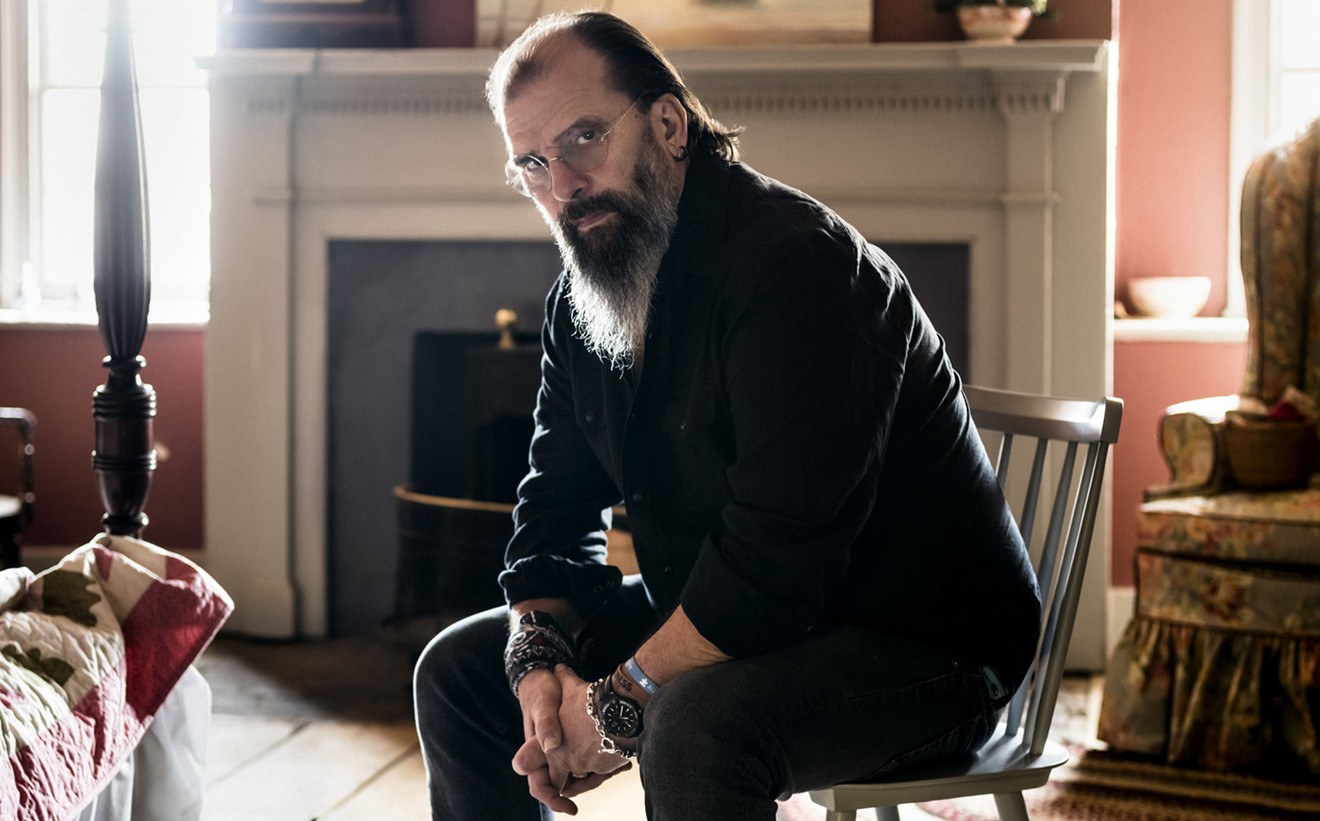When the country songwriter – who's playing at the Boulder Theater on Friday, August 4 – moved from Texas to Nashville in 1974 at the age of nineteen, he says, “The inmates were in charge of the asylum, and it was exciting.”
Earle has played acoustic guitar on many of his more recent albums, but he went the electric route on his new release with his band the Dukes: So You Wanna Be an Outlaw, which pays homage to Jennings. Earle says part of the point of the disc is to rehabilitate the term “outlaw,” a movement that goes back to the early ’70s, around the time that Nelson and Doug Sahm moved back to Austin, Texas.
“And Doug kind of points Willie toward playing Armadillo World Headquarters instead of just dance halls,” Earle says. “And he also introduces him to [producer] Jerry Wexler, and Jerry Wexler signs him to Atlantic, and he makes Shotgun Willie and Phases and Stages. And Waylon Jennings sees him doing that and having that kind of artistic freedom. That’s what it was about.“In country music, the artists that were smart realized that rock artists had freedom they didn’t have."
tweet this
“In country music, the artists that were smart realized that rock artists had freedom they didn’t have, and they wanted that, too," Earle adds. "They wanted to make records the way they wanted to; because they wanted that and did that, they got called outlaws. It’s really that simple. And I know, because I was there. It’s the moment that I left Texas and went to Nashville, and I saw both sides of it.”
Earle says outlaw country was just about making an album to be an album rather than singles, and it was about writing your own material, for the most part. Or in the case of Jennings, Earle says he wrote songs that were really good songs, but he didn’t write as much as some of the other artists he knew.
“I love Waylon’s songs, but he also recorded other people’s material,” Earle says. “He always did, and he knew a good song when he heard one. He wanted to make a whole record of Billy Joe Shaver songs, who nobody had ever heard of. He just heard him at the Dripping Strings Reunion [country festival] and thought he was a great songwriter, and that was Honky Tonk Heroes.”
Honky Tonk Heroes, released in 1973, was a huge record for Earle, and something that has been in heavy rotation for close to four decades, along with discs by the Beatles, Rolling Stones, Bob Dylan, Johnny Cash, Merle Haggard and Nelson. Earle says the sound of So You Wanna Be an Outlaw is based on Honky Tonk Heroes.
“One thing that set Waylon apart – Waylon Jennings's songs, by and large, are kind of the country version of riff rock — it’s all built around a central, strong, electric guitar line," Earle says. "That’s kind of what this record is.”
So You Wanna Be an Outlaw may be a country record, but unlike Earle's recent efforts, it’s an electric country record.
“Probably the last seven or eight records, I’ve been more interested in playing acoustic guitar for some reason,” Earle says. “I just found myself going in this other direction where I’m wanting to play electric guitar more, so that's what I wrote. I still write them on acoustic guitar. If it’s built around a riff on the lower strings, then it’s an electric song to me, and if it’s built around fingerpicking, it’s maybe an acoustic-guitar song. Sometimes I’ll do that on electric guitar, but that’s really what it boils down to. I can write either one on either instrument. I don’t drag out an electric guitar and plug it into an amp to write at home; I write on acoustic. It’s just a different kind of guitar style that lends itself to being electrified.”
While Earle fires up his Telecaster for a good portion of the dozen songs on So You Wanna Be an Outlaw, he turns to his acoustic on a few, like “Goodbye Michelangelo,” dedicated to his mentor Guy Clark, who passed away last year, and “News From Colorado,” which Earle co-wrote with his niece Emily Earle (who grew up in Colorado Springs) and ex-wife Allison Moorer.
Speaking of Colorado, Earle says he's fly-fished in the state since the ’90s.
"I used to fish Deckers a lot before that fire in the ’90s, and that killed the fish for several years. I hear the fish are back, but I haven’t been out there in a while," he says. "I fish on the Western Slope quite a bit, closer to Telluride. I started fishing with the fly rod when I was forty. I’m 62 now, so I’ve been doing it long enough. I can catch fish, but I fish with a guide. I put myself into somebody else’s hands to do it. And if I don’t, I’m not going to catch any fish. I’m not going to catch any fish going out by myself in some place I don’t know that well — that’s part of it.
"It’s kind of the opposite of songwriting," he adds. "I do it because it has no connection to what I do for a living whatsoever."
Steve Earle & the Dukes, with The Mastersons, 8 p.m. Friday, August 4, Boulder Theater, 303-786-7030, $25-$30.












